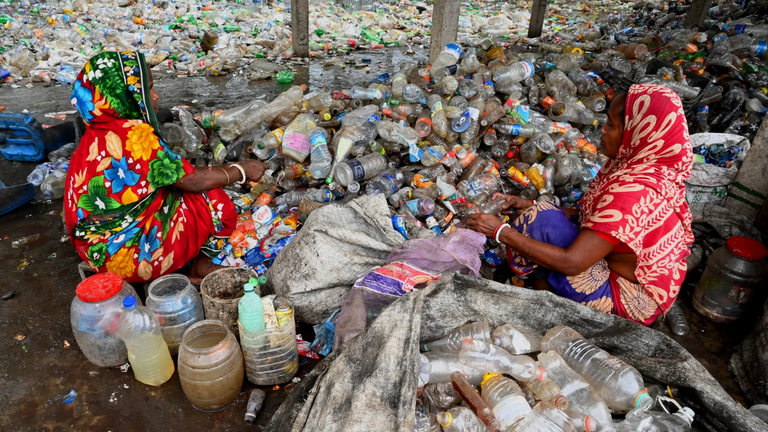WHEN SCIENCE LEAVES A STAIN WE CAN'T CLEAN
Talk about one of those things that has been a major force in reshaping our world for good; you won't have to mention three things before you'll arrive at science. That's to show its positive impact on lives, from giving us tools to combat diseases to making communication easier, even bringing to reality what seemed impossible to our ancestors, which are just mind-blowing. However, despite all of these blessings, I can't help but notice some downsides surrounding science, especially some inventions that I felt crossed the ethical line or are just more of a curse than a blessing, making it obvious that certainly not all scientific advancements turn out to be a gift in the long run.

Like I said earlier, science has been a blessing in diverse ways—smartphones, artificial intelligence, washing machines, fridges, and several other inventions, to name but a few. But then an area in science I usually feel uncomfortable with is the overproduction and dependence on plastic and synthetic materials. It's just too overwhelming, to the point where you can hardly move from point A to point B without coming across it a thousand times. From gutters being choked with plastic bottles, sachets of water, nylon, and snack wrappers, the same is the case at the marketplace, with plastic bags littering every corner. The school and other public places are no exception, because the litter is just too much and impossible to ignore or overlook.
It was just like yesterday when the compound I used to live in in Kano State got flooded on a rainy day. This was not because the rain was extraordinary but because the drainage was blocked with plastic waste: bottles, nylon, and wraps that had been discarded carelessly over time to the point where they had piled up and prevented water from flowing. It was a very stressful day because I remember getting home to join my co-tenant to scoop water out of the house and also unblock the path for water to flow freely. While doing all that, the thought in my head was, "How did we get here?"
The intention of science when making plastic was to make life easier, make packaging cheaper, and create lightweight containers and longer shelf lives. Unfortunately, now we're neck-deep in the consequences of that invention. It's worse because these materials don't decompose; instead, they find their way into the soil, rivers, and even the food we eat. If not, studies wouldn't show cases of individuals having microplastic substances in their bloodstream.

I know plastic isn't evil, because I've used it and still do. The only problem is that while science was advertising the usage of plastic, they didn't sensitize people about how to properly dispose of it, and now we've a material that we don't know how to handle, leading to us struggling to fix a mess that literally keeps growing bigger by the day.
I guess it's about time we work towards stopping the production of plastic, find a way to curtail the ones that are already widespread, and then put more attention on natural and biodegradable alternatives. I do imagine if that was the first invention before plastic, how would our world have looked? We need to do more by using the same energy used in promoting plastic to educate people on proper recycling and disposal measures, but overall, I'm convinced that science is what has the key to solving this crisis it invented. Scientists just need to be wiser going forward. We can't, because something is innovative, delve into it without considering if it's sustainable, or because an invention is useful, think it won't be harmful later in the future.

Overall, what I've learned in all of this is that science and scientists must make sure to walk hand in hand with foresight, care of the environment, and responsibility when working on an invention. Why? Because at the end of the day we only have this planet earth; if we destroy it, we've destroyed our home.
All photos are taken and edited on canva.
Posted Using INLEO
It quite annoying to notice that what was meant for good also has a significant disadvantage
It's indeed, and that's why we must look for a way to curb it disadvantage or stop production.
Plastic pollution has already become a headache, and in the future, we will face serious consequences for it. I don't know if the use of plastic will be stopped or not, but we need to be careful about it because our future generation will face serious consequences for it.
It's a big concern that needs to be solved now because it cause more harm than it has and currently do.
Science make progress in the field of recycling here in our country..... Not only Plastic but I can see Many other things are also recycle
That's one step towards curbing the widespread of plastic and other waste.